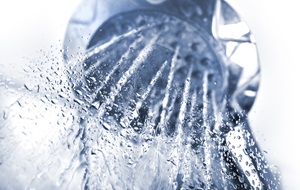Water quality is a significant concern for many homeowners in California. Hard water, which is rich in minerals like calcium and magnesium, can lead to various issues, including scale buildup, dry skin, and appliance damage. To combat these problems, homeowners often use water treatment solutions like water softeners and conditioners. This guide will explore the differences between these options and help you determine the best fit for your California home.
Understanding Water Softeners
1. How They Work
Water softeners use ion exchange to remove calcium and magnesium ions, replacing them with sodium ions. This results in “softer” water with reduced mineral content.
2. Benefits
Scale prevention: Water softeners prevent scale buildup in pipes, appliances, and fixtures.
Softer skin and hair: Softened water can lead to smoother skin and shinier hair.
Extended appliance life: Appliances like dishwashers and water heaters tend to last longer when not exposed to hard water.
3. Considerations
Sodium content: Softened water can contain higher sodium levels, which may not be suitable for those on low-sodium diets.
Wastewater: The regeneration process of water softeners produces wastewater that needs proper disposal.
Exploring Water Conditioners
1. How They Work
Water conditioners use physical or chemical processes to change the structure of minerals in the water without removing them. This prevents scale buildup and other hard water issues.
2. Benefits
Scale prevention: Water conditioners effectively address scale issues without adding sodium.
Reduced maintenance: Like softeners, conditioners help extend the life of appliances and reduce maintenance needs.
3. Considerations
Initial cost: Water conditioners may cost more upfront than traditional water softeners.
Maintenance: Depending on the type, some conditioners may require periodic maintenance.
Choosing the Right Solution
1. Water Quality Testing
Start by testing your water quality to understand the mineral content and hardness levels.
2. Household Needs
Consider your specific needs, such as sodium intake preferences and appliance longevity.
3. Budget
Evaluate the initial cost and long-term maintenance expenses of each option.
4. Local Water Conditions
Consult with local experts who understand the unique water conditions in California and can provide tailored recommendations.
Making an Informed Decision
Choosing between a water softener and a water conditioner depends on your home’s unique requirements, budget, and preferences. Both options offer effective solutions for combating hard water issues, but they work differently. By assessing your needs and consulting with professionals, you can make an informed decision to ensure optimal water quality in your California home.
At Top Tier Plumbing and Rooter, we specialize in water treatment solutions tailored to the specific needs of California homeowners. Our experts can help you choose and install the right system for your home. Call us at (951) 475-6521 now!


